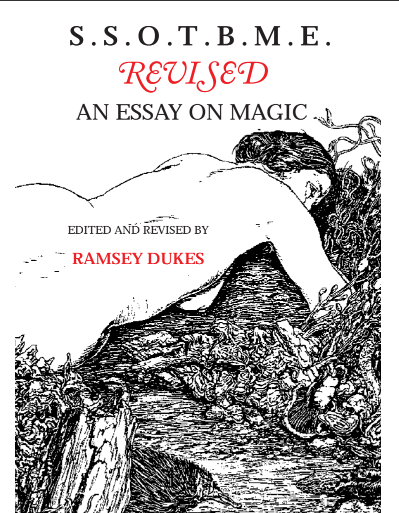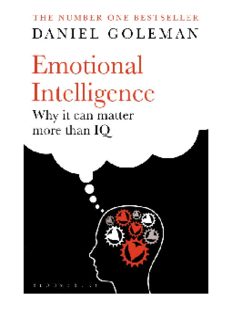A Secret Society Offers Scholarships to Students With Hidden Talents: A Literary Deep Dive
What if the most coveted scholarship wasn’t based on grades or financial need—but on something much stranger? What if it was awarded by a secret society that only selects students with hidden, exceptional talents—gifts they don’t even fully understand themselves?
This premise invites readers into a rich, suspenseful blend of dark academia, magical realism, and coming-of-age fiction. The idea of a secret society offering scholarships to gifted students is a classic trope reimagined to explore themes of identity, power, elitism, and the burden of exceptionalism.
In this blog post, we’ll explore how a novel built around this premise might unfold, what literary traditions it draws from, and why such a story resonates with our cultural fascination with “specialness” and secret opportunity.
1. The Premise: An Invitation to the Unseen
Our protagonist is an ordinary student—or so they think. They may be academically average, socially awkward, or quietly struggling in a difficult home situation. But one day, they receive a letter or visit from a mysterious organization known only as The Ordo Lux, The Atrium, or The House of the Fourth Mind.
“You have been selected to receive the Arcanum Scholarship. Attendance is not optional.”
The letter offers more than money: it promises full tuition to an elite school, secret courses not listed in the catalog, and access to knowledge hidden from the rest of the world.
What qualifies them? Not GPA. Not test scores. But a “latent ability” only the society can detect—perhaps psychic intuition, a strange affinity for languages, the ability to see patterns in chaos, or even suppressed magical talent.
This premise bridges speculative fiction and literary allegory, tapping into the universal desire to be seen—truly seen—for who we are beneath the surface.
2. The Secret Society: Gatekeepers of a Hidden World
In fiction, secret societies often serve as gatekeepers between the known and the unknown. In this case, the society isn’t just a social club for elites—it’s a curated network of guardians, mentors, and historians safeguarding extraordinary knowledge. But with power comes control.
The society offers scholarships to students not just to support them, but to recruit and shape them. Recipients are watched, tested, and trained. Their education includes clandestine midnight seminars, rituals under ancient trees, or cryptic texts written in forgotten alphabets.
Famous literary parallels include:
-
The Magicians by Lev Grossman, where elite magical education is both empowering and emotionally destructive.
-
A Deadly Education by Naomi Novik, where a deadly magical school selects students for survival and skill.
-
The Secret History by Donna Tartt, where a group of classics students hide dark secrets behind their intellectual pursuits.
What unites these narratives is the seductive appeal of knowledge—and the psychological and moral consequences of belonging to a hidden elite.
3. The Students: A Diverse Cohort of the Unusual
The protagonist quickly learns they are not the only one. The society brings together other scholarship recipients—each with unique, often bizarre talents. A girl who can recall every word she’s ever read. A boy who dreams in languages he’s never studied. A student who can sense truth in lies.
These characters serve as both allies and rivals. The society thrives on ambiguity—rewarding cooperation one day, and pitting students against each other the next.
This dynamic allows the novel to explore:
-
Imposter syndrome (“Why me?”)
-
Survivor’s guilt (“Others deserved this more.”)
-
Jealousy and ambition (“What am I willing to sacrifice to stay?”)
The students’ bond is forged not only through learning, but through shared fear—of failure, expulsion, or being “erased” from the program.
4. The Hidden Curriculum: More Than Academia
The secret society’s education is unlike anything the protagonist has encountered. Beyond normal classes, they are taught to harness their gifts through obscure practices: lucid dreaming, memory palaces, astral navigation, or deep pattern recognition.
Each lesson reveals more about the nature of the society—and its purpose. Perhaps the world is in danger. Perhaps knowledge itself is under threat. Or maybe the society has no noble aim at all, only the preservation of power and its own mysterious traditions.
The strange curriculum might include:
-
Symbolic logic that alters perception
-
Access to a hidden library only the chosen can enter
-
Assignments that cross into dangerous terrain—both real and metaphysical
These secret lessons serve as metaphors for the internal transformations of youth: identity, awakening, rebellion, and discovery.
5. Power, Elitism, and the Burden of Being “Chosen”
At the heart of this story is a critique of meritocracy and elitism. The society gives the students the illusion of being “chosen,” but gradually it becomes clear that the selection process is less about talent and more about usefulness.
What does it mean to be gifted if your gift is being exploited?
The novel might explore:
-
The psychological toll of expectation
-
The commodification of uniqueness
-
The moral gray zones of ambition and loyalty
The society’s scholarship recipients are given much, but asked for even more. The protagonist must ask: Is this still a scholarship, or a contract?
6. The Break: Conflict, Betrayal, and Escape
No story like this is complete without a turning point.
The protagonist uncovers a truth: the society has a dark past. Perhaps former recipients have gone missing. Perhaps the talent extraction is literal, not metaphorical. Or perhaps the society’s “gift” suppresses the very creativity it claims to nurture.
Faced with a choice—stay and succeed, or flee and risk everything—the protagonist chooses rebellion. The climax might involve breaking into forbidden archives, exposing the society to the outside world, or using their hidden talent in ways the society never intended.
This arc transforms the character from a passive recipient to an active agent—reclaiming their story, their gift, and their future.
7. Literary Significance: Why This Story Resonates
The idea of secret scholarships for uniquely gifted students speaks to deep cultural currents. It resonates with:
-
The fear of unseen systems controlling success
-
The longing to be exceptional in a world of sameness
-
The conflict between loyalty to institutions and personal ethics
This premise is a metaphor for real-world experiences:
-
Being a first-generation student in elite spaces
-
Navigating imposter syndrome and hidden rules
-
Feeling like your talents are only valued when monetized or controlled
In the era of AI, surveillance capitalism, and high-stakes education, this fictional tale reflects real anxieties about who gets ahead—and what price they pay for it.
Conclusion: A Story Worth Writing and Reading
A novel about a secret society that offers scholarships to students with hidden talents is more than a fantasy—it’s a mirror. It reflects the pressures of modern education, the desire to belong, and the cost of ambition.
Whether told through speculative fiction, magical realism, or literary mystery, this story promises:
-
Tension and transformation
-
Mystery and moral complexity
-
A protagonist who learns that power is not given—it is chosen, resisted, and ultimately redefined
It’s a story for dreamers, skeptics, and anyone who’s ever wondered what lies behind the curtain of elite opportunity.








